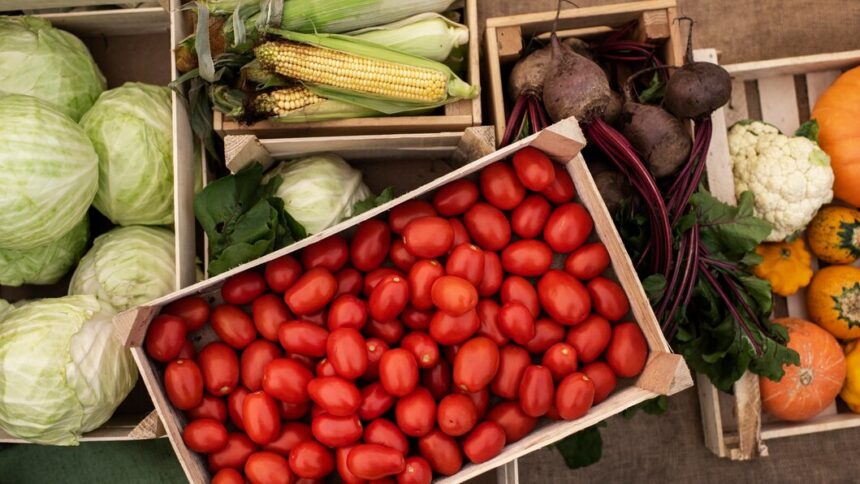Marketing is an essential component for any successful farming operation. In South Africa, where the agricultural sector is both competitive and diverse, effective marketing can mean the difference between a profitable farm and one that struggles to make ends meet. Here’s how South African farmers can improve their marketing strategies to reach more customers and boost sales.
1. Understand Your Market
The first step in marketing farm products is to know your target market. Different strategies will appeal to different customers, such as:
- Local Consumers: Focus on freshness and locally grown produce.
- Supermarkets and Retailers: Emphasize consistent quality, volume, and supply reliability.
- Restaurants and Cafés: Highlight unique products such as organic or specialty items.
Tip: Conduct simple market research through surveys or direct conversations with customers to understand their preferences and purchasing habits.
2. Create a Strong Brand Identity
Branding is not just for large corporations. A recognizable and trustworthy brand can set your farm apart. Develop a brand that reflects your values and resonates with your target customers. This includes:
- Logo and Packaging: Ensure your logo and product packaging are attractive and memorable.
- Farm Story: Share the story of your farm—whether it’s a family-owned heritage farm or a modern, eco-friendly operation. People are more likely to support a brand with a relatable story.
Tip: Use visuals and storytelling on your packaging and marketing materials to create an emotional connection with your customers.
3. Leverage Digital Marketing
The internet is a powerful tool for reaching a larger audience. Here’s how to harness its potential:
- Social Media: Platforms like Facebook, Instagram, and TikTok are great for showcasing your farm’s daily operations, behind-the-scenes activities, and fresh products. Use high-quality images and engaging content to attract followers.
- Website and E-commerce: A professional website gives potential customers easy access to information about your farm and products. Consider setting up an online store to sell your products directly to consumers.
- Email Newsletters: Build an email list and send out regular newsletters featuring new products, promotions, and farm updates.
Tip: Use social media analytics tools to understand which types of content resonate most with your audience and adjust your strategy accordingly.
4. Participate in Farmers’ Markets and Local Events
Farmers’ markets are not only a place to sell your products but also a valuable way to connect directly with customers, gain feedback, and build a loyal customer base. Participating in local events such as food festivals or community fairs can help showcase your farm’s offerings to a wider audience.
Tip: Provide free samples at these events to entice potential customers to try your products and engage in conversations to build relationships.
5. Partner with Local Businesses
Collaborating with local businesses can open new marketing opportunities. This could include:
- Restaurants and Cafés: Partner with local eateries to supply fresh produce or specialty products that they can feature in their dishes.
- Retail Stores: Build relationships with grocery stores and organic markets to sell your products on their shelves.
- Artisan Collaborations: Partner with local artisans for unique offerings, such as fruit preserves made with your produce or handmade bread using your grains.
Tip: Offer special promotions or seasonal collaborations to keep the partnership fresh and mutually beneficial.
6. Highlight Your Unique Selling Points
Whether it’s organic farming, eco-friendly practices, or rare crop varieties, make sure to promote what makes your farm special. Customers are often willing to pay a premium for products that stand out, such as:
- Organic and Pesticide-Free Produce: If your farm practices organic farming, obtain the necessary certifications and promote them.
- Sustainability: Highlight any environmentally friendly practices, such as water conservation techniques or renewable energy use.
- Special Varieties: Promote less common or heritage varieties of crops that might not be readily available at supermarkets.
Tip: Use clear labeling and informative signage at physical sales points and on your website to educate customers about these unique features.
7. Offer Farm Tours and Experiences
One way to market your farm products is to invite customers to experience the farm firsthand. Farm tours, pick-your-own produce events, and workshops can:
- Increase direct sales by encouraging on-site purchases.
- Create a memorable experience that encourages word-of-mouth referrals.
- Strengthen the connection between your farm and the community.
Tip: Ensure that the farm experience is safe and family-friendly, and promote it through social media and community bulletin boards.
8. Use Attractive Packaging and Clear Labeling
Well-packaged products are more likely to catch a customer’s eye. Use high-quality materials and make sure your packaging includes:
- Your farm name and logo.
- Clear labeling of the product, including weight and ingredients.
- Information on whether the product is organic, pesticide-free, or sustainably produced.
Tip: Including QR codes on packaging that link to your farm’s website or a short video about your production process can also engage tech-savvy customers.
9. Implement Loyalty Programs and Discounts
Customer loyalty programs can help retain repeat customers. Consider offering:
- Discounts on bulk purchases.
- Loyalty cards that offer a free item after a certain number of purchases.
- Referral discounts to encourage current customers to spread the word.
Tip: Track these promotions to measure their effectiveness and adjust your approach as needed.
Effective marketing is essential for maximizing the profitability of your farm products. By understanding your market, leveraging digital tools, and fostering personal connections through local events and partnerships, South African farmers can create a marketing strategy that sets their products apart. With a clear brand identity, unique selling points, and consistent community engagement, your farm can thrive in today’s competitive market landscape.









